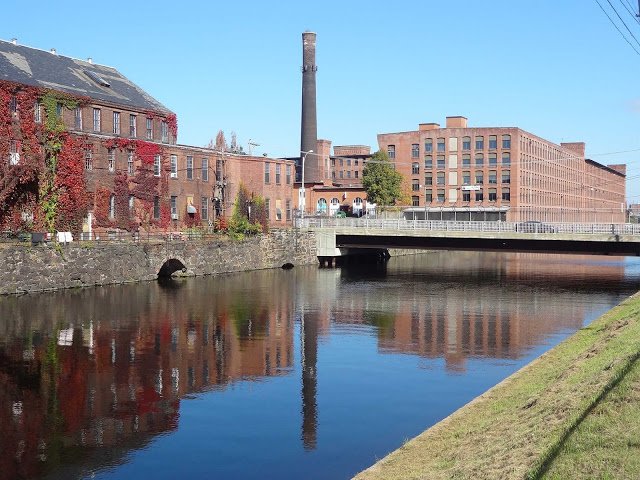(MassLive – Jeanette DeForge) Lawmakers working to find solutions to keep four nursing homes open said they are facing multiple complex issues in their attempt to prevent about 300 elderly and vulnerable people from being displaced from their homes.
Six local lawmakers who represent Springfield, Chicopee and Westfield, along with Chicopee Mayor John L. Vieau and Springfield Mayor Domenic J. Sarno, met with Northeast Health Group officials on Tuesday to discuss the situation and concerns about finding new, appropriate homes for the residents.
The meeting is the first since the company announced on Feb. 6 it would close all four of the homes it runs. The nonprofit plans to discontinue operations of Chapin Center, in Springfield; Governor’s Center, in Westfield, and Willimansett Center East and West, in Chicopee by June 6.
“We learned they do want to stay in business but to get there is a difficult process,” said State Rep. Michael Finn, D-West Springfield, who chaired the meeting and has teamed up with State Sen. John Velis, D-Westfield, to take the lead on the issue.
The owners said they cannot stay open under a new state Executive Office of Health and Human Services regulation that bans long-term care facilities from having more than two people per bedroom. By eliminating three- and four-person rooms the business will lose an estimated $2.5 million a year is no longer financially viable.
In their closure report submitted to the state, company administrators said they slowly reduced the number of people per room, achieving that in April 2022, just before the regulations officials went into place May 1. The reduction resulted in a loss of between 19% and 40% of its beds at different homes and a small increase in Medicare reimbursements did not make up for the difference.
“They can operate on a reduced number of beds but not where they currently are,” Finn said. The worst case was at Chapin Center, which went from 160 to 96 beds.
Officials for the company declined to comment beyond the short statement it released a week ago saying it is closing the facilities “with deep regret” and will work with the state Department of Public on its shutdown plans.
Social workers are working with families to ensure all its residents find new, appropriate placements. None of the buildings will close until they find new homes, officials said.
Lawmakers are now working with officials for the state Executive Office of Health and Human Services and the state Department of Public Health, which developed the regulation, to schedule a meeting for later in the week or early next week, Velis said.
While four others, Sen. Jacob Oliveria and Reps. Shirley Arriaga, Kelly Pease and Aaron Saunders, joined in Tuesday’s meeting, the entire Western Massachusetts delegation is being invited to participate in the Department of Public Health meeting since the issue will impact all area cities and towns, he said.
“One of my goals is to get to the bottom of the waiver they put forward and find out why it was denied,” Velis said.
A Northeast Health Group administrator said all four facilities requested relief from the regulations, which also include minimum staffing requirement, but no applications were granted.
Velis said he is now researching to find out why they were denied and why there is no appeal process.
Northeast Health Group is not the only company to see waiver requests denied. A lawsuit that represents 31 nursing home owners said each one applied for a waiver and 29 received rejection letters. Two others are waiting for responses.
“Plaintiffs’ waiver requests were summarily denied by identical letters issued by the Department (of Public Health),” the lawsuit against the state said.
Taking into account the lessons learned from the COVID-19 pandemic, which killed many people in nursing homes including 84 men who died at the Holyoke Soldiers’ Home in one of the worst outbreaks in the country, the question is can a balance be found to make long-term facilities financially viable while following safety protocols, Velis said.
“Anyone who tells you we have an answer to this is not doing their homework,” Velis said. “One of the most challenging things is all these issues have merit.”
The problem has multiple facets including dealing with the bigger picture of making Medicare and Medicaid reimbursements are high enough to ensure people are receiving proper care in long-term facilities.
“Is there a way to move forward to take into account the well-being of the residents?” he said. “Can we do something that manages the risk?”
Studies did show COVID-19 was less likely to be spread in facilities that had two-bedroom or single rooms. But rooms with three or four people may be safe if risks are mitigated by using HEPA filters, creating isolation rooms for people who come down with an infectious disease or using other methods, Velis asked.
Lawmakers are also concerned that there are some vacant beds in long-term facilities in Western Massachusetts, but not enough for 300 people.
But Velis said lawmakers have formed a united front on the issue that no residents will be forced to be moved too far from their families.
“Saying we will place someone east of Worcester is morally indefensible,” he said.
Vieau said he, Sarno and Westfield Mayor Michael McCabe are also working on the issue.
While the residents and their families and the staff are his biggest concern, “I do not want two empty buildings in Chicopee and I don’t want people from Chicopee having to drive a long distance to visit their loved ones,” Vieau said.
Vieau said he is especially dismayed because Willimansett East and West have five-star ratings for their level of care and have won multiple awards.
He said the closure announcement also highlights a bigger problem with the healthcare industry in Western Massachusetts, especially after hearing hospitals are keeping people for longer because they cannot find appropriate places in rehabilitation centers for people who need short-term and long-term care when they are discharged.

